
After settling my family into a rented house on Wilmington Island in Savannah and stopping by the Colorado School of Mines to run a workshop on adaptive hypermedia, I deployed to South Korea.
South Korea is a country of visceral experiences. The smells are sharp and pungent with garlic and kimchi being ever present. The threat from North Korea is real and permeates everyday activities as South Korea is prepared and was capable of defending itself. Traffic is crowded. Monsoons and turtle traps are real. The economy is bustling and the citizens are justifiably proud of the progress they have made since the Korean War. Americans are revered by the older generation and mostly appreciated by the younger generation. They also remember who had served in Korea as I received a small plaque once I arrived celebrating that my father and I had served to protect Korea and that the Korean government and its people were grateful. By the end of my 12 month tour, I really respected the South Koreans and what they had accomplished.
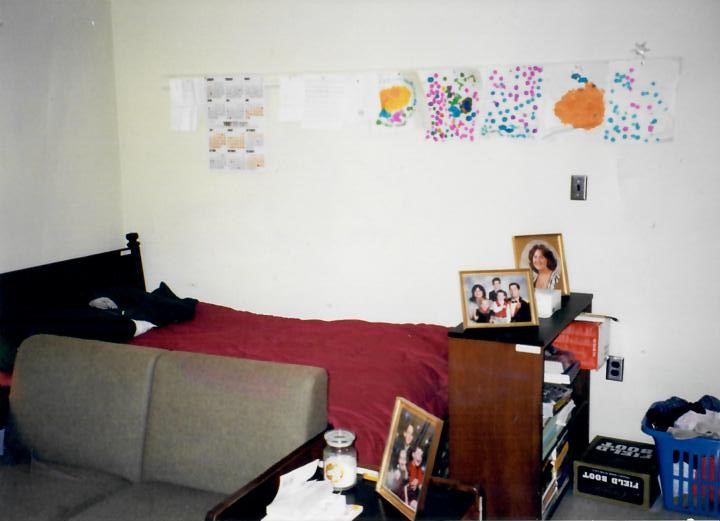
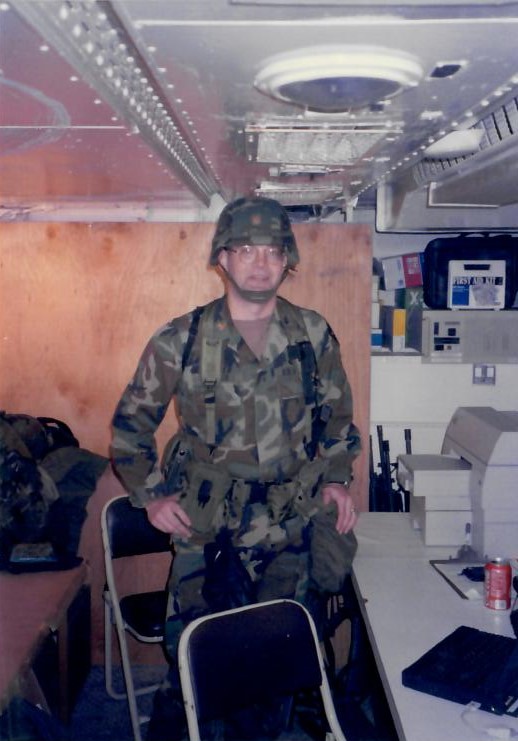
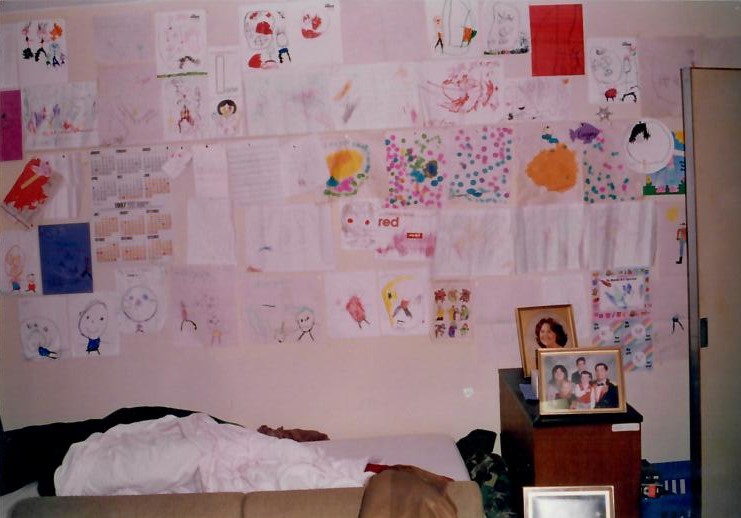
My position was as Deputy G6, 2nd Infantry Division and I would be a member of the 122nd Signal Battalion. I was based out of Camp Red Cloud in Uijeongbu about 19 miles south of the DMZ. I would work for LTC Alvie Johnson and this would be my second branch qualifying job as a Major. In a slightly unusual arrangement, I had two Majors working for me – MAJ Clint Bigger and MAJ John Lehman. Clint was a top performing below the zone selectee assigned to me but there wasn’t any organizational position. He and I had attended CGSC together but in different sections. He performed as a deputy and was outstanding. He was an incredibly competent leader with a good ole boy persona from Oklahoma who was always candid with me and not afraid to tease me in private. He was a great colleague. John Lehman knew Korea, knew how to get things done, and had deep technical skills and leadership. He was a bit more soft spoken than Clint but equally effective. MAJ Sean Boyle worked as the battalion executive officer who was experienced, thoughtful, and spent a lot of time mending relationships that Alvie melted.
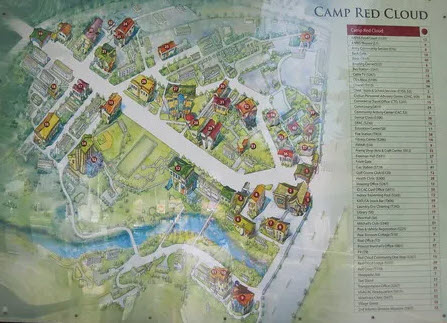
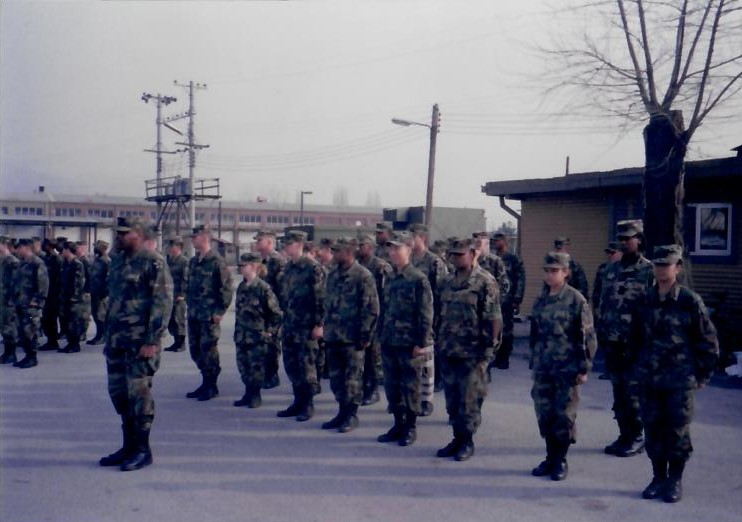
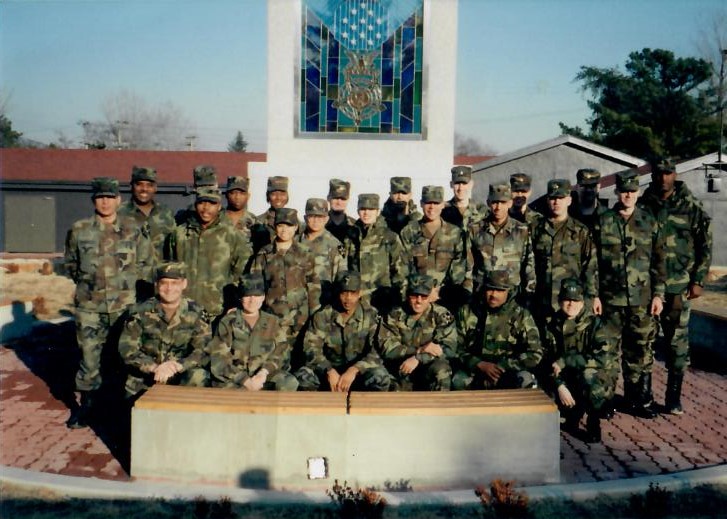
I should be clear that I really enjoyed working for LTC Johnson and appreciated that he did not take crap from anyone regardless of rank and he did not suffer fools. I think it had to do with his time in charge of White House communications.
The Four Horseman
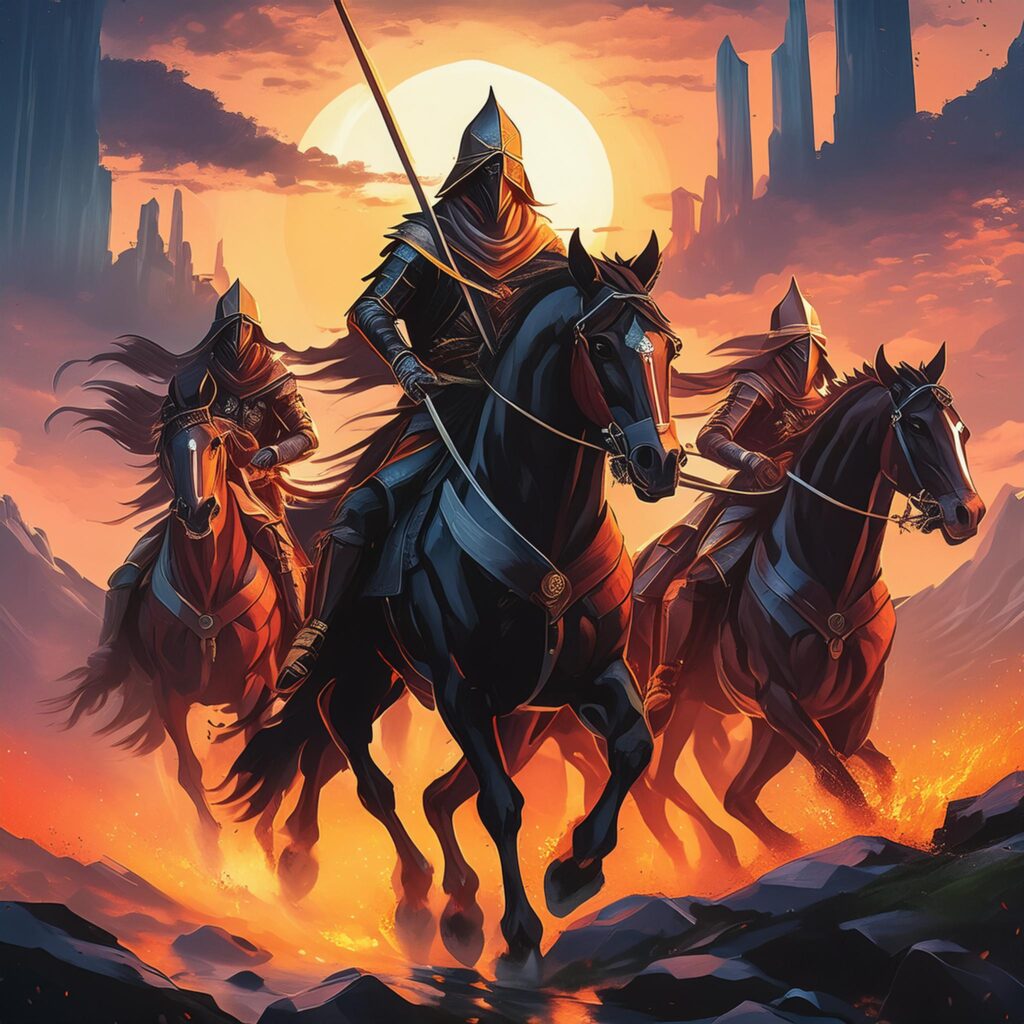
The combination of these leadership styles was powerful. Overtime, Sean, Clint, John and I would pick up the nickname of the “four horseman” (of the apocalypse). You did not mess with the four horseman. We never discussed who was who of the four aspects (conquest, war, death, and famine), but Sean was definitely death. Actually, Alvie was death but Sean was the threat of death and he had to clean up all the relational deaths caused by Alvie afterwards and mend the relationships. If you want to wanted to be melted to death, irritate Alvie. Sean and Alvie were also often clearing the path of obstacles so we could move ahead at full speed. Clint best fit war and you best move out of the path of war because Clint was always on a mission for Alvie or me. I best fit conquest as I was intent on changing the world for the better and was thoughtfully ruthless. John was the strategic long term threat who was going to win – he was famine.
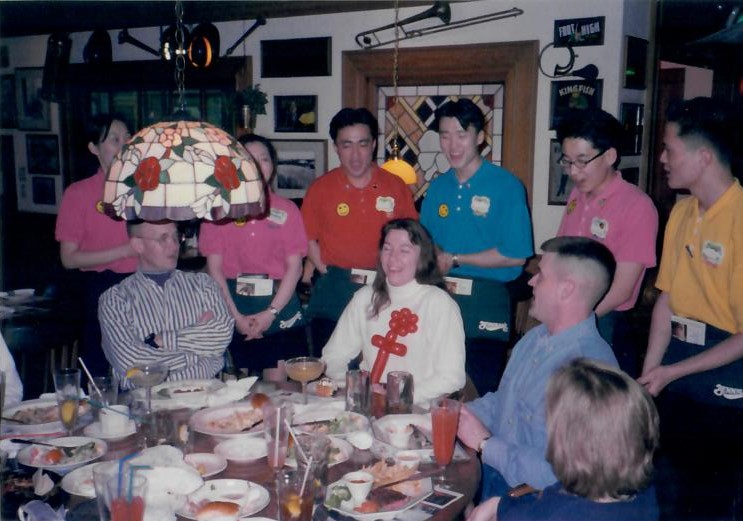
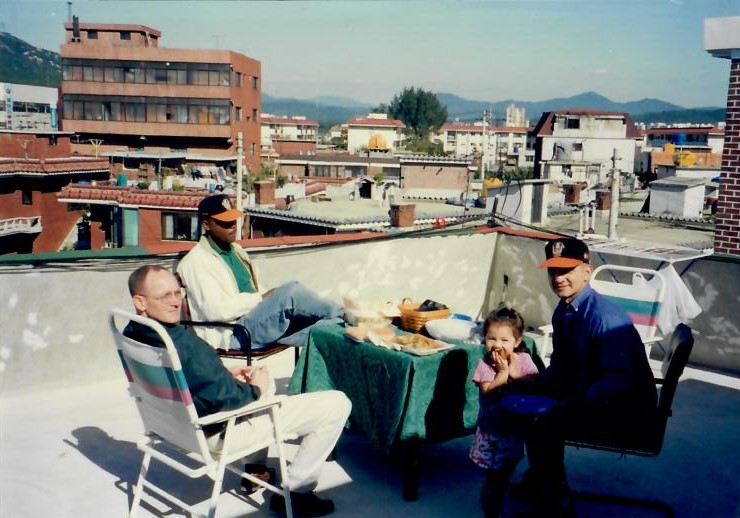
We worked for impressive divisional leaders. The commanding general was MG Michael B Sherfield. He would tragically died only a couple of years later. The Assistant Commanding General was BG Walter “Skip” Sharp. I would end up working with General Sharp daily for the entirety of my time in 2nd Infantry Division including making enough house calls that his wife knew me. He would later go on to become a four star General and in an odd twist, I would serve on the West Point Distinguished Graduate selection committee that recommended him as a distinguished graduate. The Chief of Staff was COL Marshmen. He did not understand our work but held us accountable to perform. He had worked in Korea for many years and was impressively competent in getting things done. He could melt you as well and then offer you a Pabst Blue Ribbon beer while you worked to solve a problem. Regrettably, this would be his last tour as he was passed over for promotion to general for the fourth time and was at 30 years of service. Finally, the G3 was Colonel ?. He was on the path to making general officer and was a constant ally in our work.
In 1996, the operational cycle was very intense. Everyone worked six day work weeks with long hours in the office or field as the threat of attack was real. For divisional staff, most of our work was done 300 feet underground in a hardened and massive bunker. Most soldiers rotated in during the summer and there was a focused effort to be ready for a possible attack as soon as the rice paddy fields froze over. Like a nun or monk, you were totally committed to your craft and you either thrived or were fired. Once the rice paddies melted, everyone relaxed and prepared to rotate out to make room for the next cycle of soldiers. You had one two week break typically before, during, or after the Christmas holiday season. This was the normal cycle. It was not to be for us.
TACWEB
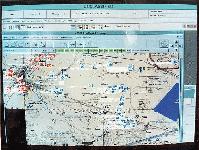
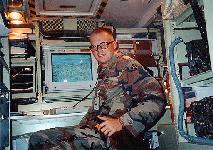
At the time, division commanders and their staffs used a computer system called Maneuver Control System or MCS. Think of it as specialized hardware running a specialized version of Unix running specialized software to support data-driven decisions for 18,000 soldiers. To run this system, the Army uses high school graduates who likely have never had a computer science class in their life. I don’t know who thought this was a good idea but it wasn’t. To make matters worst, the MCS software development cycle was longer than divisional command. When MG Sherfield thoughtfully submitted a long list of the things he most hated about MCS, the development team cheerfully told him they would get right on it and deliver the results after he was no longer in command due to the long software development cycle. I have no doubt they were using a waterfall development model. In summary, MCS was a bad system and MG Sherfield did not like it.
During a July 1997 exercise in preparation for the Ulchi Focus Lens, MG Sherfield got so angry at the system that he kicked a terminal off the desk, turned to me and ordered me to gather the 18 MCS terminals in the division and lock them in our military shipping containers. He was so angry that I hesitated before reminding him that the terminals would melt in those containers and he curtly responded, “exactly”. He proceeded to task me to build a replacement system for MCS in six weeks so he could use it for Ulchi Focus Lens – the world’s largest computerized command and control exercise. It had to run over our divisional Mobile Subscriber Equipment(MSE) which had a peak speed of, wait for it…..wait for it…9,600 bits per second. The average speed was closer to 2,400 bps. This was going to be challenging.

BG Sharp was put in charge of the project from the perspective of generating and making decisions on requirements. I would interface with BG Sharp twice daily to jointly decide priorities and what was in the realm of the possible (and not) given the tight constraints on the project. A small team of four (me, MAJ John Lehman, 2LT Brandon Purcell, and SGT Dave Morris) went to work to build a divisional command and control system in six weeks. 2LT Purcell and SGT Morris doing 100% of the coding. All four of us collaborated on the architecture.
I was committed that web technology could work and the team agreed due to it lightweight structure and ability to work over low bandwidth networks. I had some good experiences with Adobe Cold Fusion working on top of Microsoft SQL Server at West Point and after some discussion, the team became comfortable with those architectural choices. There was real risk in this approach. Cold Fusion was only two years old and SQL Server for NT was only four years old. We had six weeks and we had to order and install Windows NT servers while writing the software. We didn’t have time for a change management process so we coded directly on the production servers. I know this sounds horrible and it was but we simply did not have the time for change management until after Ulchi Focus Lens.
We settled into a frantics schedule using a spiral development model. BG Sharp met with me twice daily and to his credit, he pushed aggressively but he did listen and a degree of trust built between us. Every decision was based on risk and all functionality was prioritized. BG Sharp and I tested every night and developed new requirements everyday. I provided the daily new requirements to John and he led the agile team. Brandon and Dave coded and built like crazy. None of us slept. We named the system TACWEB.
Six weeks later, the division commander, his staff, and the major subordinate unit commanders used TACWEB in Ulchi Focus Lens and it was a complete success. We immediately began work on version two of the software as there was an Inspector General (IG) audit on division command and control coming in about two months. We had learned a lot in six weeks and we now had two months to implement the new software. MG Sherfield started using TACWEB for all of his divisional briefings and thus we gots lots of feedback on desired functionality. The staff and subordinate unit commanders became adept at using the system for command and control and soon could anticipate the actions of other decision-makers in the system.
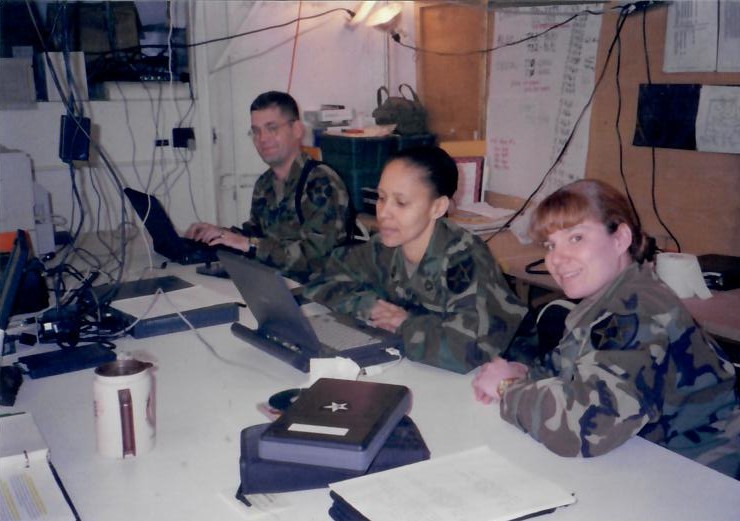
The IG audit was a big deal and we were all nervous. How did 2nd Infantry Division compare to other Army divisions? Did TACWEB really make a difference or were we going to get into major trouble for the 18 melted MCS terminals still in storage? The exercise went well and the IG determined that TACWEB was accelerating decision-making in combat by at least 30 minutes, orchestrating a common view of the battlefield in near real time, and facilitating anticipation of decisions in subordinate units. While it does not sound like much, anticipating and moving units, especially the reserves, 30 minutes faster as the battlefield develops is significant and can be the difference between winning decisively or losing catastrophically. The IG recommended that TACWEB be briefed the top four star general in the Army – General Dennis Reimer, the Chief of Staff of the Army.
General Dennis Reimer traveled to Korea shortly thereafter to review the system and he was lukewarm on the system. While he was very complimentary on the initiative and functionality of the system, he very much wanted MCS to have the agility and functionality of TACWEB.
Word of TACWEB spread both inside and outside the Army. Inside the Army, we started receiving requests from the other nine divisions to learn more. We repackaged the software so that it could be easily deployed and helped other divisions. Ultimately, five of the ten Army divisions moved to using TACWEB instead of MCS. TACWEB was used in the Bosnian conflict as TACWEB’s flexibility was essential in a conflict that was very different than other conflicts that the United States had been involved in. The MCS team took a hard look at TACWEB functionality and over time, the system improved.
Outside the Army, Microsoft had never envisioned Microsoft SQL server being used this way. I was invited to Microsoft to brief not only their top executives but also a number of general officers from all of the services. I had never been to Microsoft headquarters before and I was treated like royalty. It would not be my last visit as later in my career I would be on the Higher Education Advisory Board for Microsoft.
A couple of, humourous to me, vignettes from Korea:
- The division had an award for the officer who had screwed up the most since the last meeting of the 2ID officers. The award named the Broken Tomahawk, was a monstrosity of rock, wood, and medal, and had to be always with the award winner. As we assembled for the officer meeting in August 1997 in the officer’s dining mess, MG Sherfield noted the general officers and the command sergeant major kept winning the Broken Tomahawk. He announced that there were plenty of other officers screwing up and that the aforementioned leaders were exempt from winning the award. This was bad as we had prepared a multimedia presentation nominating BG Sharp for the award. He had inadvertently deleted an entire brigade in the task organization component of TACWEB in the middle of an exercise effectively killing all of the combatants. The multimedia presentation ended with the movie of a baby wheezing and then continuing to laugh and then wheezing and then continuing to laugh for 2 minutes straight. It did not take very long before everyone was laughing riotously. MG Sherfield stood, wiping tears from his eyes, faced BG Sharp and said, “You are on your own on this.” BG Sharp won the award and was a good natured recipient.
- Every week, a group of us would go out on the economy and eat a traditional Korean lunch with grilled meat, mint leaves, kimchi, and garlic. The key word in the previous sentence was garlic. We would eat so much garlic with the meal that our skin was burning and we were sweating profusely. We would then walk into buildings innocently as the occupants drove out windows to get away us. If there is a purgatory, I am going to spend some time there as I and others did this every single week I was in Korea.
- My high school and West Point classmate MAJ Eric Von Tersch visited me unexpectedly while in Korea. I ran into him 300 feet under ground in the division command bunker. I forget why Eric was there but he was always where you did not expect him during his time with Special Forces. We caught up like we had never been apart like you do in the military before he was off to locations unknown and probably classified.
- $5 haircuts came with the best shoulder and necks massages in the world. I was highly motivated to get my hair cut even when I did not need one.
- There is a nine hole golf course at Camp Red Cloud and when time permitted, LTC Johnson and his majors would play golf when time permitted on a Sunday. Alvie was pretty athletic but the golf clubs he rented were for someone half his height causing a swing even more unique than my left-handed, cross handed swing. On a par 3 9th hole, he once hit into the women’s restroom. The majors insisted he had to play the ball where it landed. He ignored us and dropped a ball in an advantageous location. The shot became a myth in the battalion with greater and greater embellishments over time.
- There was a friendly rivalry between the G3 and the Chief of Staff and they had no problem poking each other. At one point, I was pulling into the Chief’s office to be yelled for 5 minutes straight because the network and his new computer that he did not want was horrible. Of course, this was a one way conversation while he was venting for this extended period of time as he had me locked in the position of attention. The G-3 walked in, commented that the ethernet cable was not plugged in and the Chief was an idiot, and walked out. I got chewed out a second time because I did not get the hell out of his office fast enough.
- Towards the end of March, MG Sherfield was holding his weekly command and staff meeting and he made a minor suggestion to enhance TACWEB. We continued the brief and about 5 minutes later, returned to the portion of the system that he wanted fixed and it was fixed. 2LT Purcell and SGT Morris had been monitoring the performance of the system and immediately implemented the change. MG Sherfield noticed it and looked at me wonderingly. I pounced commenting that my work here was done and he no longer needed me as the system was sentient. MG Sherfield laughed and the Chief of Staff noted that I would leave when my 365 days in Korea were up and not one day earlier.
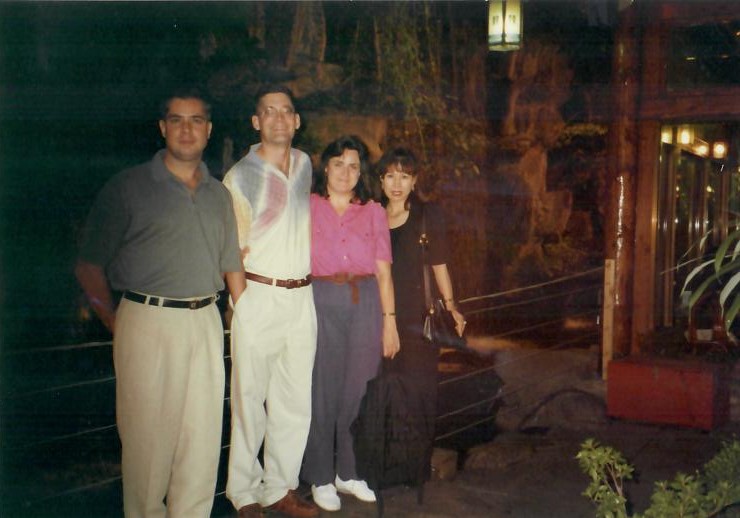
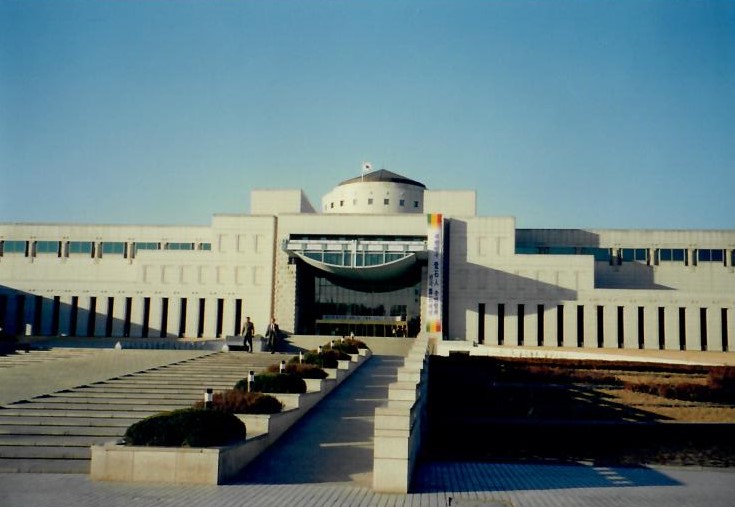
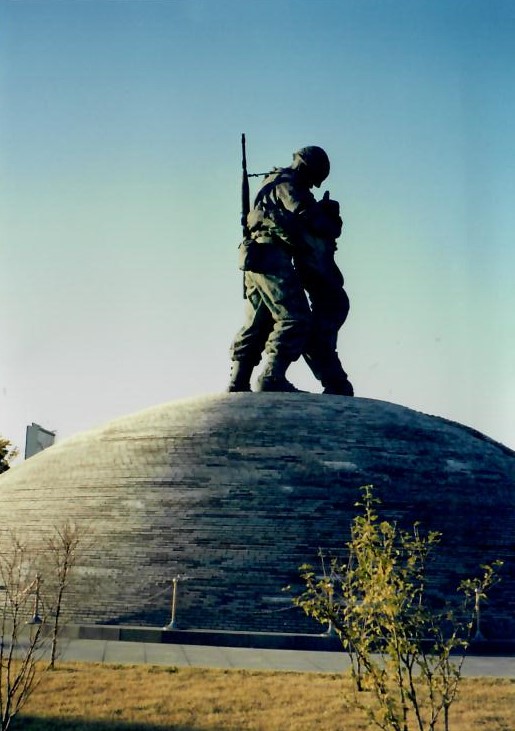
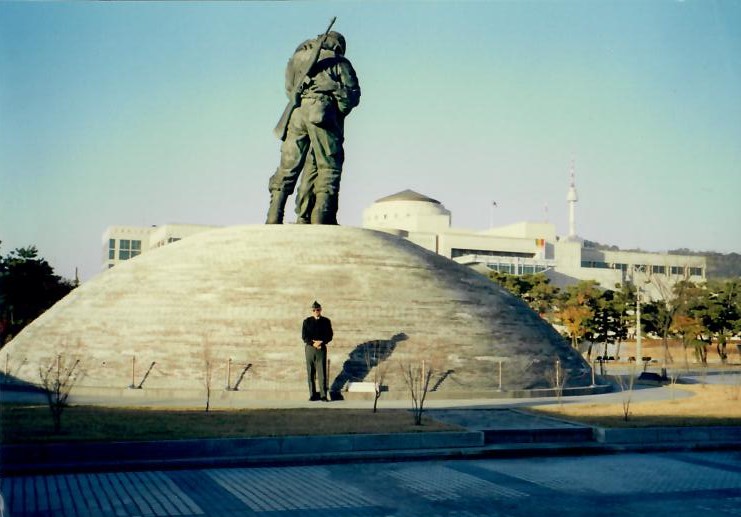
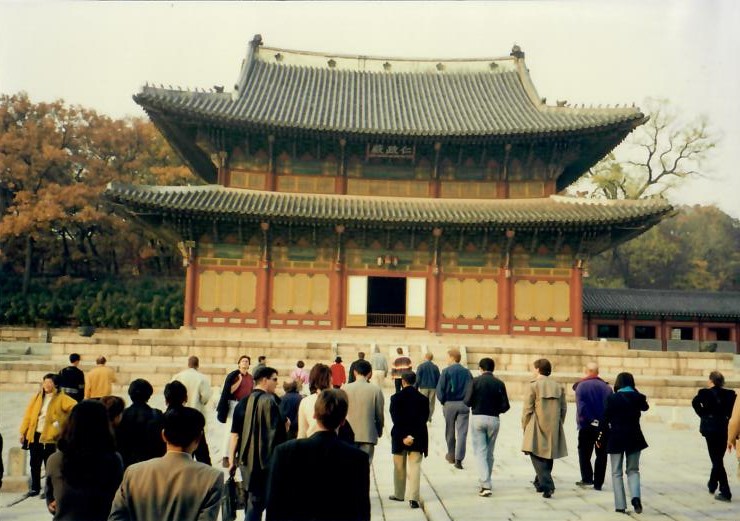
As the weather warmed, discussions about my next job whirled. 1st Signal Brigade wanted me to stay and offered me a battalion executive officer position as well as the ability to bring my family over if I would stay 18 more months. Having a third branch qualifying job as a major would have given me significant advantages in being selected for battalion command and is almost unheard of. A second alternative was to pursue my PhD and return to West Point. I reached out to LTC Clark Ray to seek his counsel. Somehow, West Point was not aware that I had already completed CGSC and a branch qualifying job. They thought I would need another two years to finish up my tour. The misunderstanding cleared, I received an offer from West Point to return with a PhD as a senior rotating faculty member.
This was going to be a pivotal moment in my career. I was going to make LT Colonel regardless of the decision. If I stayed in Korea and took the third branch qualifying job, my chances of battalion command were very good. If I did well as a battalion commander, my changes making Colonel were high and chances of brigade command were good. Do well there and in a joint assignment, and I was competitive for general officer. We would move as a family every 18-24 months and pursue a traditional military career of operational leadership. The alternative was to go to graduate school, return to West Point, and compete for an Academy Professor or Professor, United States Military Academy position. Those positions do not come up very often and allow you to stay at West Point until the end of your career. Otherwise, it would be a three year assignment at West Point and then back out to the Army with little no chance of command. There was greater stability for my family with the West Point option and the potential of great stability if I could win one of the competitive positions. I talked with Eileen and ultimately decided that the best choice was to return to West Point. I accepted the West Point offer and expeditiously started evaluating graduate school for my PhD.
The Chief of Staff was incorrect about me staying 365 days. The G4 liked me and I left about 2 weeks early. I did not tell Eileen and the kids but instead conspired with my dad for an airport pickup and delivery to the house. My dad told Eileen a fragile package had been misdirected to his house and he was going to bring it over immediately. Eileen was shocked when I emerged from the car, Curtis ran across the driveway and leaped into my arms, and Gregory and Michelle followed and danced around me. It was good to be home after a year.
